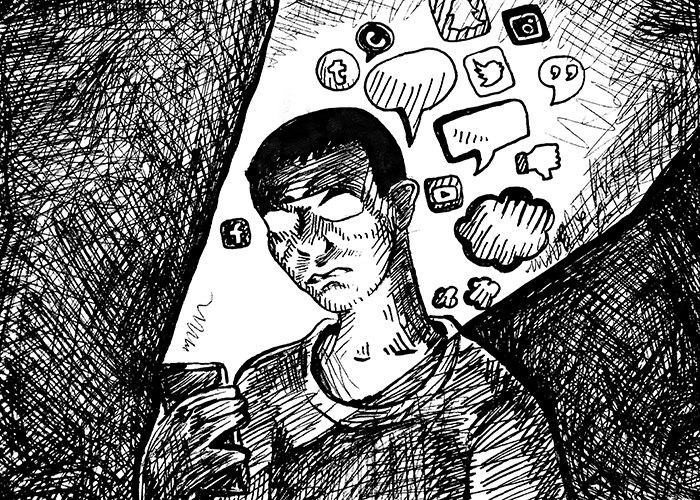Internet shaming has become the new form of bullying
Because of how anonymous and secret the internet is, anyone can become a bully. All of us have done it and we’re not even aware of it.
When we watch old movies that depict bullying as a tall, mean kid pushing people into lockers during passing period, we begin to laugh because of how unrealistic it is.
Although ever since phones and electronics came out, social media has become the new route bullies take to hurt the people they wish they could hurt in public. This new form of bullying is known as internet shaming.
Contrary to most beliefs, internet shaming is not only for the stereotypical bully; because of how anonymous and secretive the internet is, anyone can become a bully. All of us have done it, and we’re not even aware of it.
Internet shaming is the act of hopping on bandwagons of hating people online.
It is very prominent in the mainstream media against people who are in the public eye because common people have the ability to comment and feel that they have a say in a situation.
For example, when there are domestic abuse allegations, not convictions, there is automatic backlash by common citizens that suddenly turn ruthless and cruel.
Since celebrities are put onto a high pedestal, when they get allegations that hurt their character, we automatically feel better about ourselves because the people who are portrayed as so”perfect” through the media have been proved to be otherwise.
It is human nature to have a feeling of relief also known as “I’m glad it’s not me” and although this feeling is natural, it is still toxic. Since social media is a place where anyone can express their opinion, it has become a verifying platform.
On a platform where people can log on to a site and have a certain opinion on, for example, a celebrity, then when they see other users hating the same person as them, it becomes easier to believe their own feelings are valid.
Another example is constant hashtags that reach trending pages and how the feeling of being involved in this communal outrage can cause people to lose hold of their morals and express feelings they would never admit to in person.
This feeling of belonging in a society of nasty social media is why internet shaming continues to evolve day by day.
As the internet grows, internet shaming will continue to gain popularity because of its ability to make people feel included.
So until our society begins to understand that hurtful words are hurtful, no matter if it’s face to face in gym class or summarized in a 280-character tweet, internet shaming will continue to live on.


